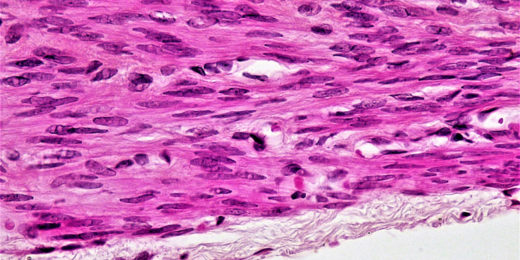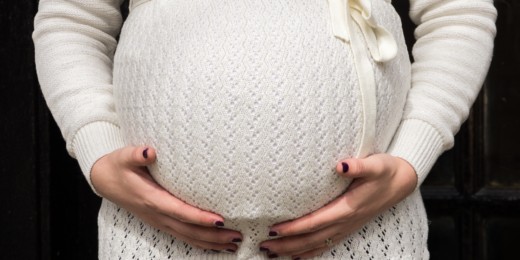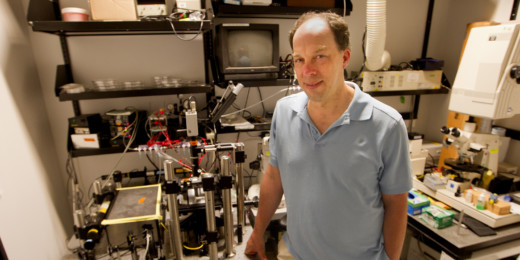A Stanford physician argues pregnant women should be appropriately included in clinical research to improve their health and the health of their fetuses.
Category: Obstetrics & Gynecology
Identification of first-in-class enzyme involved in childbirth and muscle diseases
New Stanford research has identified an enzyme that plays a critical role in uterine contractions as well as in other muscle tissues.
Higher birth risks associated with older dads
From the data of more than 40 million births, scientists link paternal age to birth risks and even risks to the mother’s health.
Improvements to newborn screening could lower number of false positives
A team of researchers has used an algorithm to improve newborn screening for genetic diseases, with the hopes of reducing the number of false positives.
Stanford group has new targets for lowering maternal mortality
A Stanford team has taken a multi-pronged approach to reducing preventable maternal deaths among California women, a new scientific paper explains.
Stanford expert weighs in on risks of marijuana in pregnancy and breastfeeding
Doctors are worried that marijuana legalization is harming vulnerable populations, such as infants exposed to the drug during pregnancy or breastfeeding.
Prenatal exposure to acute stress can affect cognitive function in children of low-income households
A Stanford study finds that after being exposed to a prenatal event of acute stress, children from poor households suffer negative cognitive effects.
A look at how California lowered maternal mortality rates
A new NPR story explains how California experts have been examining the causes of maternal mortality and successfully figuring out how to counteract them.
Epidurals increase in popularity, Stanford study finds
The percentage of pregnant women getting epidurals or other spinal analgesia has climbed to a high of 71 percent, according to a Stanford study.
Genetic differences in protein key to pregnancy may help explain preterm birth rates
Genetic diversity in the receptor for a key reproductive hormone may help explain why some populations have higher rates of preterm birth than others.
Starting a family, against the odds
Denise Wong had survived breast cancer treatment at 27. Ten years later, she and her husband wanted to have a child. Her treatment had made that unlikely, but her fertility team at Stanford found a way.
Links between birth weight and adult metabolic health examined in new Stanford study
Over the last 30 years, a growing body of epidemiological research has suggested that poor nutrition in pregnancy hurts the baby by setting metabolism to a “thrifty” state that leads, decades later, to type 2 diabetes and heart disease.
Blood test for pregnant women predicts premature birth, says Stanford-led research
A Stanford-led research team has developed a simple blood test for pregnant women that shows, with 75-80 percent accuracy, which pregnancies will end in premature birth.
To prevent an antibiotic from causing hearing loss, researchers team up to design new drugs
Stanford scientists used discoveries in the lab to design new versions of a widely used antibiotic to prevent the side effect of hearing loss.
Asking hard questions to reduce maternal mortality
It’s one of the hardest questions in medicine: Should hospitals ever stop spending money to avert certain preventable deaths?
The link between a mom losing a relative during pregnancy and her child’s mental health
New Stanford research indicates that having a mom losing a loved one during pregnancy may affect the mental health of the child as he or she grows into adulthood.

















